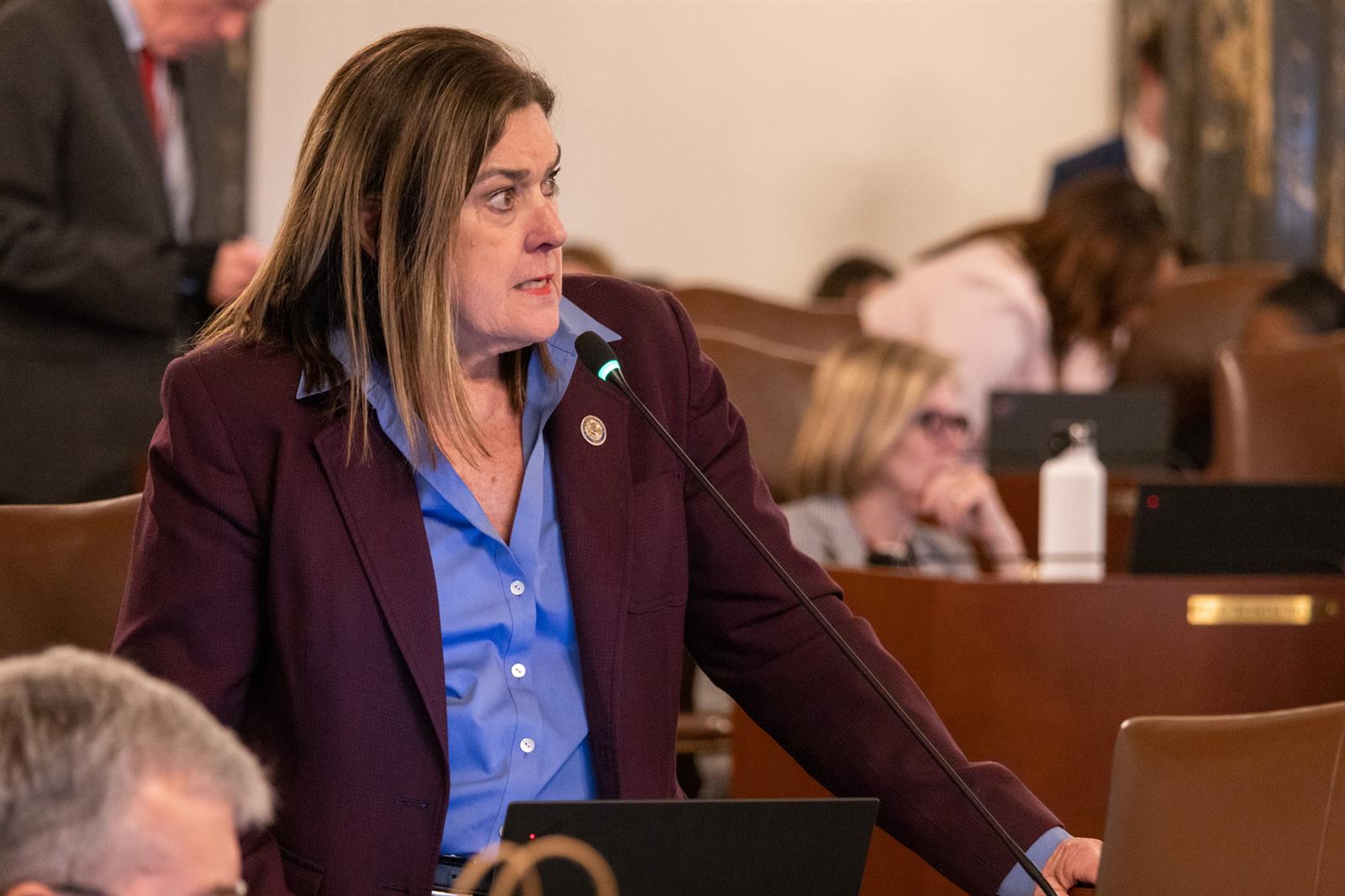‘I’ve raised four boys, and it’s going to be messy’; Optional all-gender bathrooms bill moves closer to passage

SPRINGFIELD – The Illinois Senate on Thursday passed an amended version of a bill that would allow businesses and public institutions to provide multi-occupant all-gender bathrooms if they choose to do so.
House Bill 1286 would change current state law, under which single-occupancy bathrooms are automatically designated for all genders, but multi-occupancy bathrooms must be designated as male or female.
While the measure had already passed the House on March 23, the amended version heads back to the chamber for consideration before it can be sent to Gov. JB Pritzker.
Justin Sia, a Chicago attorney, testified in committee this week that he came up with the idea for the bill while in law school at Loyola University. He described it as “a pro-family, pro-business and pro-safety bill that permits, not mandates, public and private entities to install gender inclusive, multi-stall restrooms.”
Sia said he’d heard from transgender and gender nonbinary individuals who were “insulted and even attacked in male or female restrooms simply for who they are or for how they look.” But he said he also heard from caregivers for adults of a different gender and others who would benefit from gender-inclusive restrooms.
“We also learned about parents and guardians with young children of a different gender who must decide whether to leave their children unattended in public restrooms, or to enter a restroom that doesn’t match their gender,” he said.
In its original form, HB 1286 would have required that each toilet stall in an all-gender bathroom be separated by dividers and have a functioning lock mechanism on the door. Urinals, if present, also would have to be separated by partitions.
But the Senate amended the bill to require that all-gender bathrooms have “floor-to-ceiling” toilet stalls with workable locks and that urinals not be allowed.

“We took into consideration the concerns of several members who voiced that concern in terms of people who walk into a restroom and might be offended by a urinal,” bill sponsor Sen. Celina Villanueva, D-Chicago, said during committee. “So what we were trying to do is to make sure that we address the concerns. And again, a urinal is just as good as a toilet.”
“Are they going to be offended if I leave the toilet seat up?” asked Sen. Neil Anderson, R-Andalusia, in that committee.
“I mean, I might be offended,” Villanueva replied.
“I’ve raised four boys, and it’s going to be messy,” said Sen. Jil Tracy, R-Quincy, prompting laughter from many in the room, including Villanueva. “I see it as a sanitary issue.”
But when the bill reached the Senate floor on Thursday, the tone of the debate became harsher and more bitter. There, Anderson said the bill would lead to violence.
He spoke about taking his 10-year-old daughter out in public and how he handles a situation when she needs to use a restroom. He tells her to go inside and check to see if anyone else is in the room. If there is, he says he waits for her outside.
“If somebody goes in there and it’s a woman, fine,” he said. “Under this, I can’t see with the floor-to-ceiling things. She won’t be able to see who’s in there. I won’t be able to see who’s in there. I’m telling you right now, if a guy walks in there, I’m gonna beat the living piss out of him.”

That prompted shouts of support from other Republicans. But later in the debate, Sen. Mike Simmons, D-Chicago, said the comment should be stricken from the record, “because I wouldn’t want a single person in this state to read that record and think that anybody here would come after them if they would do something so mundane as to use the bathroom, a simple call of nature.”
Sen. Chapin Rose, R-Mahomet, also suggested passage of the bill would lead to violence. He argued that most sexual assaults in bars occur in bathrooms. Rose also argued that, beyond the issue of sexual assaults, the measure isn’t needed.
“I’ve talked to my wife about this,” he said. “Why on earth would any lady want a dude in their bathroom?”

Meanwhile, Sen. Cristina Castro, D-Elgin, accused Republicans of using “dog-whistle” language – coded or suggestive language to draw support from a particular group – and Senate Majority Leader Kimberly Lightford, D-Westchester, said the opponents “have a problem with the LGBTQ community.”
The measure passed the Senate on a vote of 35-20, sending it back to the House.
Miss Clipping Out Stories to Save for Later?
Click the Purchase Story button below to order a print of this story. We will print it for you on matte photo paper to keep forever.

